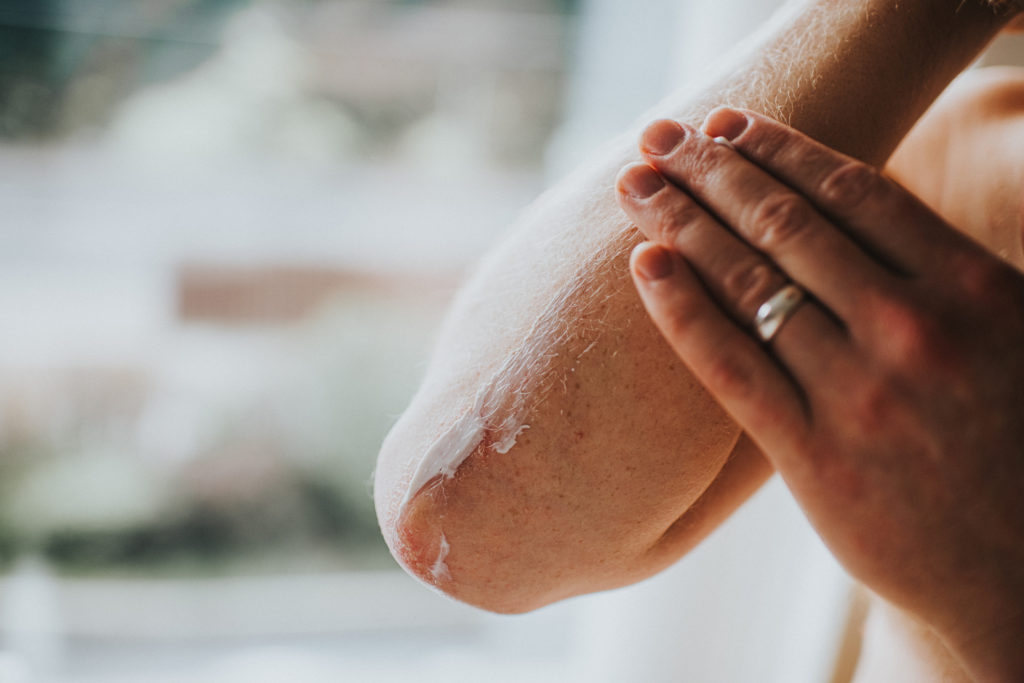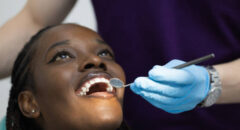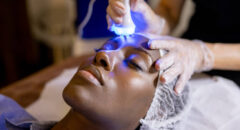
While millions of people are dealing with psoriasis around the world, the way it affects black skin is still not as well-understood as it should be.
In fact, some persons may go undiagnosed because psoriasis can appear differently for African Americans than those of other ethnicities.
Even when you have been diagnosed, studies show that your treatment might not be as effective depending on which dermatologist you see.
That makes it even more important for you to understand your psoriasis well as well as how to prevent painful flare-ups.
1. Make Sure You Eat Well
While there’s no set diet for persons who are dealing with psoriasis, health experts recommend an anti-inflammatory diet. Since psoriasis flare-ups can be influenced by inflammation in the body, foods that combat that may be helpful for preventing flare-ups. Focus on adding fresh fruits and vegetables to your diet.
2. Manage Your Stress
As with many illnesses, chronic stress can make psoriasis worse. To deal with that, experts recommend finding effective stress management techniques. These techniques can include relaxation activities such as meditation and yoga. Being able to talk about stressful situations with close friends or loved ones will also help.
3. Keep Your Skin Moisturized
Dry skin can lead to a flare-up so it’s best to keep your body as moisturized as possible. You should use moisturizing skincare products as part of your routine. If you wash your hands often or have particularly dry skin, it’s good to moisturize your skin as often as you need to. Unless your dermatologist has prescribed a special moisturizing lotion, petroleum-based products typically work well.
4. Bundle Up When It’s Cold
Cold weather also dries your skin out easily. The only way around that is to wear warm clothing that covers you well. Of course, being too warm can come with its own issues so find what works for you.
5. Avoid Certain Medications
Medications that affect your immune system can trigger inflammation, which in turn can cause a flare-up. These medications include lithium, antimalarial drugs, certain nonsteroidal anti-inflammatory drugs (NSAIDs), as well as particular high blood pressure drugs.
6. Protect Your Skin Properly
Bruises, cuts, and irritation can offset what is known as Koebner's phenomenon. With this condition, broken skin can offset a flare-up of psoriasis. Not only should you protect your skin when outside, but it’s also recommended that you avoid acupuncture and tattoos.
7. Consider A Vitamin D Supplement
According to a recent study, persons with psoriasis usually have a Vitamin D deficiency. While you can get the vitamin from a little sunlight and the right foods such as salmon, milk, and fortified cereals, that’s not always enough. If you’re not eating right or getting some sun, a supplement can make the difference.
8. Avoid Drinking Alcohol
Although the link between alcohol and psoriasis needs to be studied further there is some evidence that drinking can make your symptoms worse. It’s also important to note that some medications for psoriasis can interact with alcohol so consult your doctor.
9. Get A Little Sun
Studies show that ultraviolet rays can do wonders for skin conditions that are caused by inflammation. The trick is to get a small amount of sun each day. If you overdo it, you can get end up getting sunburn which can cause a flare-up.
10. Use a Humidifier
In another effort to maintain your skin’s moisture level, consider using a humidifier. That can keep your skin from getting dry. Humidifiers are also helpful for persons who have an issue with nasal congestion.
Of course, if none of these suggestions are making a difference in your psoriasis flare-ups, it’s time to talk to your doctor.
It’s possible that your current medications are not enough to deal with your condition or there could be an unknown trigger in your environment.









